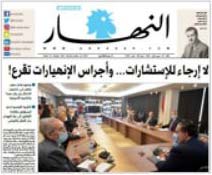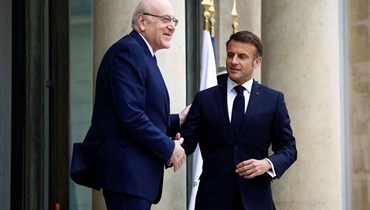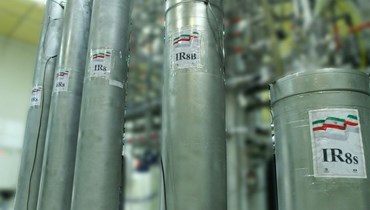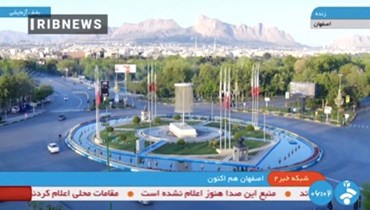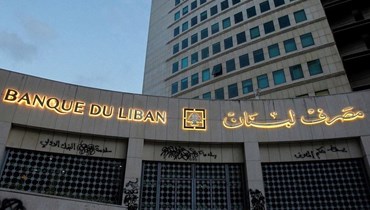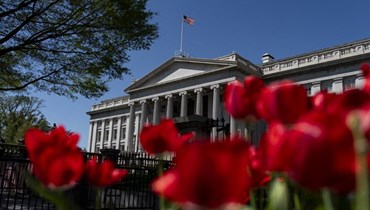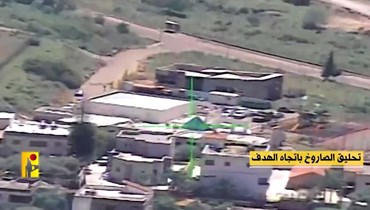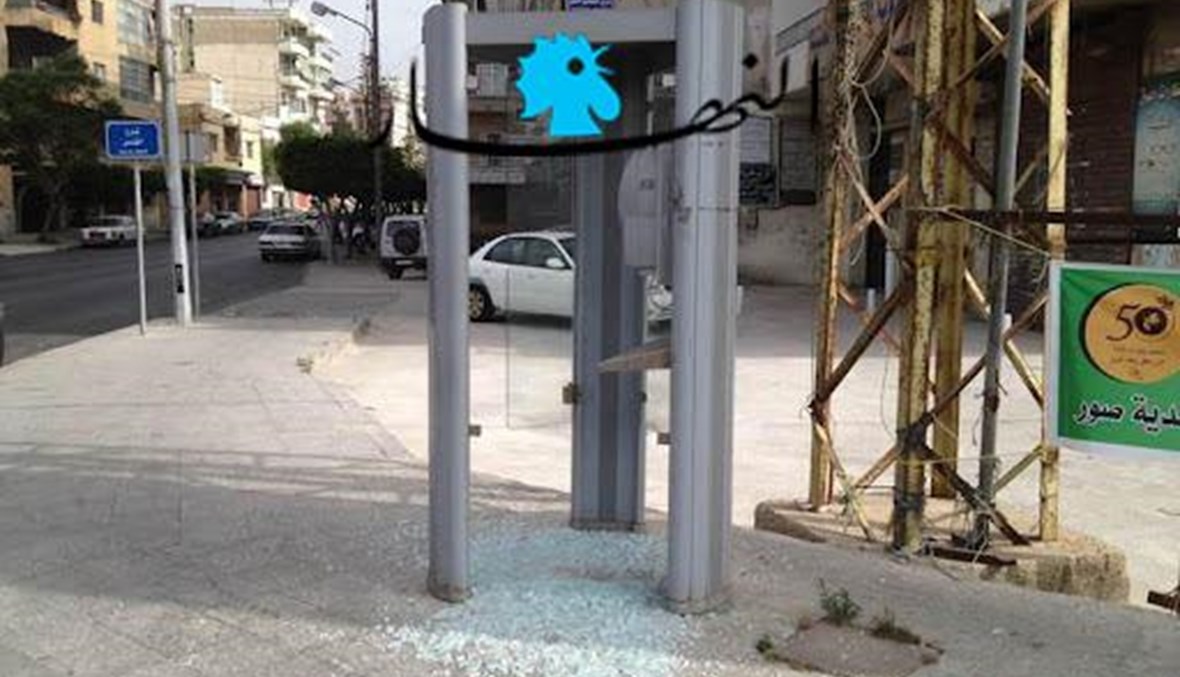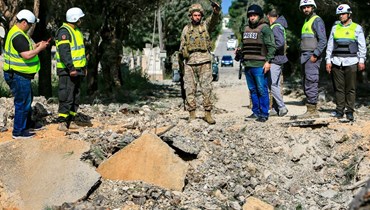A Roadmap for Telecom and Digital Liberalization
11-10-2021 | 00:38
المصدر: Annahar
Kamal Shehadi*
For decades, Lebanon’s telecommunications industry suffered from bad policies, lack of visionary leadership, incremental and reactive management, and political interference. Political interference reached matters big and small: appointments at senior levels, pricing decisions, investment decisions, and even tower deployment and tower rental contracts when it touched a politician’s constituents. Politics distorted the industry to such an extent that the whole industry has been concentrated into a monopoly controlled by one person - the Minister of Telecommunications.
For decades, Lebanon’s telecommunications industry suffered from bad policies, lack of visionary leadership, incremental and reactive management, and political interference. Political interference reached matters big and small: appointments at senior levels, pricing decisions, investment decisions, and even tower deployment and tower rental contracts when it touched a politician’s constituents. Politics distorted the industry to such an extent that the whole industry has been concentrated into a monopoly controlled by one person - the Minister of Telecommunications.
Since the early 2000s, subsequent ministers of telecommunications have controlled three of the five largest corporations in the country (measured in terms of employment, revenues, or investments): the Ministry of Telecommunications/Ogero for fixed line services and Alfa and Touch for mobile services. Ninety five percent of the telecom industry’s annual revenues flowed through these three companies, making the industry structure the most monopolistic in the world, save for Cuba and North Korea. All three companies were initially set up (or, in the case of Ogero, reactivated) to be temporary corporate vehicles that have survived for decades. Not only is the structure of the industry deeply flawed, but the legal status and governance of the three entities are not fit for purpose. These distortions slowed the growth of the industry and its overall performance, which has gotten worse in the last two years.

In any other country, this situation would have been promptly addressed and corrected. Not in Lebanon, though, where there has been strong opposition for meaningful reform. Despite all this, the industry remains the most promising engine for economic growth and development for Lebanon.
To realize the full potential of telecommunications and the digital economy, a radical reform of the telecom industry is required. Lebanon needs to transform the state monopoly into a competitive industry driven by private investments and regulated by an independent regulatory authority. However, for the remainder of 2021 and much of 2022, the priority will be to “keep the lights on,” to keep the networks up and running despite the shortage of fuel and hard currency.
Given the political landscape and the limitations it currently imposes on serious - ie, structural- reforms, the roadmap for Lebanon’s telecom industry is best devised in two phases. The first phase covers a maximum of twelve months, ie., no later than September 2022. The second phase covers the following two years, ie., until the end of 2024.
The priorities for the first phase are to keep the fixed and mobile networks of the three state-owned entities - Ministry/Ogero, Alfa, and Touch- as well as all the private networks, up and running. A second priority is to keep as much of the talent, especially the top talent, in the country. MoT should inventory all the contracts, including the licenses, currently in place, prioritize them, renegotiate where possible, and identify which ones are absolutely necessary and require an urgent injection of foreign currency. The industry’s list of urgent FX requirements should be included in any request for emergency financial assistance. In parallel, MoT should also review telecom prices of services offered by the state-owned companies and adjust those prices upward, as needed, to cover the networks’ operational expenditures.
During the first phase, the minister of telecom should also use the time to develop a blueprint for a telecommunications policy and embed it in the government’s economic stabilization and recovery program. The telecommunications policy should provide a vision and a roadmap for the telecommunications industry which commits the Government of Lebanon to a competitive market where an independent regulatory authority regulates private entities, including the privatized ones. The policy should set measurable targets for the use and adoption of telecommunications and digital services by individuals, businesses, and government entities, as well as for the provision of services in underserved areas, to the poor, and for critical services such as healthcare and education. The policy should also provide a roadmap for the transformation of the ministry of telecommunications into a ministry for information technology/digital services and define the role the ministry will play to develop Lebanon’s capabilities in information technology. The policy should include policies and initiatives to unleash synergies with other sectors of economic activity such as education and healthcare and build-up Lebanon’s competitiveness and entrepreneurship in industries such as the creative technologies, financial technology, medical and health technology, advertising and marketing technology, gaming, and other promising new fields where Lebanon’s talent can be channeled to productive ventures.
During the second phase of reforms, the Government of Lebanon should privatize and liberalize the telecommunications industry in line with the adopted telecommunications policy. The first step is to appoint a new board for the Telecommunications Regulatory Authority (TRA) and complete the full transfer of regulatory functions from the Ministry (which still usurps these functions in contravention to Law 431/2002) to the TRA. The TRA should have financial, administrative, and regulatory independence, as envisaged by Law 431/2002. The TRA should work closely with the Minister of Telecom and the Council of Ministers to finalize the Telecommunications Policy within two months from the formation of the government following the 2022 parliamentary elections. TRA should, in accordance with the government’s Telecommunications Policy, draft the licenses that will be auctioned alongside the three telecom networks.
The three major telecommunications networks and licenses should be put up for sale through a competitive and transparent bidding process. Consortia grouping international and local investors should be invited to bid for a controlling stake, ie, no less than 51 to 60% of the shares of each company. The bidding process should be held under the watchful eyes of Lebanese and international media, a newly elected Lebanese Parliament, and Lebanese civil society. The bidding should be designed not to maximize government revenues from privatization but rather to maximize investments in the newly privatized companies as well as the inward foreign currency flows.
The partial privatization of the fixed network as well as Touch and Alfa can be completed within six months from the formation of a new, reformist government, and the Republic of Lebanon should hold the remaining (unsold) shares through a sovereign wealth fund until a listing on the stock exchange or further sale of shares in the years that follow.
The collapse of the Lebanese Pound has forcibly severed the dependence of the Republic on telecommunications revenues. In 2019, the treasury netted LL1600 billion, equivalent to US$1.06 billion at the time. In 2020, the amount in LL was slightly higher – LL1700 billion, around US$ 110 million (assuming the LL/US$ rate hovers around 15000/US$). The economic crisis has also ended the politicians’ gravy train - their ability to assign contracts arbitrarily, to employ cronies, and to distribute favors to friends and family. Lebanon has an opportunity to design a privatization process intended to maximize the benefits to the people and economy of Lebanon.
*Dr. Kamal Shehadi is a senior executive and a leading international expert in telecommunications and digital policy and regulation. He is also an active angel investor and mentor for technology startups.
Kamal has a B.A. with honors (A.B. cum laude) from Harvard University and a PhD from Columbia University.



 اشترِك في نشرتنا الإخبارية
اشترِك في نشرتنا الإخبارية


